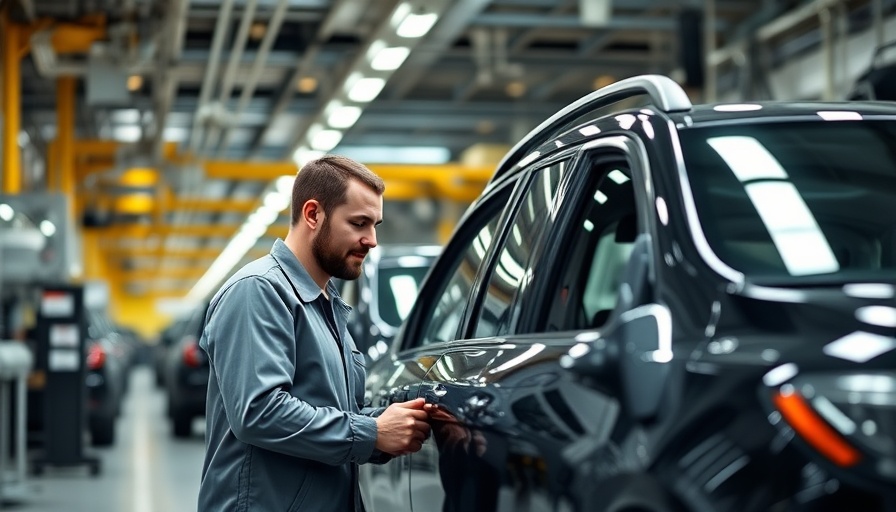
Why Tariffs Might Revitalize Michigan's Auto Industry
The recent conversation around auto tariffs in the United States has generated a mix of hope and anxiety among Michigan manufacturers. With a looming 25% tariff on vehicle imports, one school of thought posits that these tariffs may be beneficial in filling the numerous vacant factory spaces across the state. While traditional economic theories suggest that such tariffs could disrupt the automotive sector, there's an underlying optimism that they might encourage local production and job creation.
Understanding the Current Landscape
Michigan's automotive sector has taken a heavy hit over the past few years. The decline in vehicle production, compounded by a slump in electric vehicle output, has led to millions of square feet of factory space going underutilized. As U.S. Senator Gary Peters emphasizes, there’s a collective hope amongst companies to bring jobs back home, albeit with the understanding that such changes won’t happen instantaneously.
As highlighted by analytics firm GlobalData, auto plants in Michigan are operating well below their capacities: Ford stands at 69%, General Motors at 67%, and Stellantis at only 54.7%. This underutilization reflects both the pre-existing challenges faced by the industry and the need for strategic shifts to capture new market opportunities.
The Short-Term Impact of Tariffs
In the short term, the imposition of auto tariffs may shock the system. Industry insiders warn that these tariffs could lead to increased costs for automakers, dealers, and ultimately consumers. Higher vehicle prices may deter buyers, leading to a decline in overall sales. This potential market contraction raises valid concerns among stakeholders about the immediate repercussions of such trade policies.
A Historical Perspective: The Effects of Past Trade Policies
This isn't the first time the automotive industry has faced increased tariffs. Historical examples reveal a complex web of outcomes where tariffs sometimes generated temporary boosts to local employment before prices inflated and demand dropped. The challenges faced in the past hint at a cautious approach for Michigan’s automotive sector as it navigates a critical juncture.
Alternatives to Tariffs: Is There a Better Option?
It's crucial to remember that tariffs are not a panacea. Alternatives that promote investment in local manufacturing, such as subsidies for electric vehicle production or incentives for green technology development, could sidestep the pitfalls that tariffs often introduce. These strategies focus on future readiness and enhanced sustainability—a direction many are advocating for in light of environmental concerns.
Looking Ahead: Potential Outcomes
The future of Michigan’s auto industry amid ongoing tariff discussions remains uncertain. Will these tariffs lead to a surge in domestic production and job opportunities, or will the potential pitfalls deepen the challenges at hand? Whatever the outcome, the evolving situation presents a critical case study on the impacts of trade policy on regional economies.
Conclusion: The Call for Vigilance
As Michigan navigates this crucial economic moment, it’s essential for stakeholders—from policymakers to industry leaders—to remain vigilant. Open dialogues and adaptive strategies will be key in overcoming challenges and seizing opportunities that tariffs may present. Stakeholders should prepare to adapt to changing circumstances and keep the lines of communication open as we explore the best path forward for Michigan's automotive future.
 Add Row
Add Row  Add
Add 




 Add Row
Add Row  Add
Add 

Write A Comment